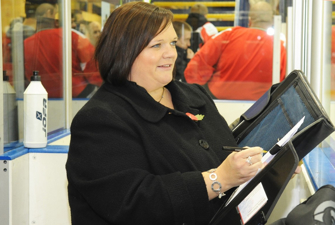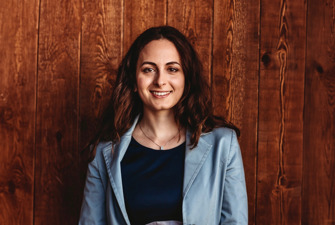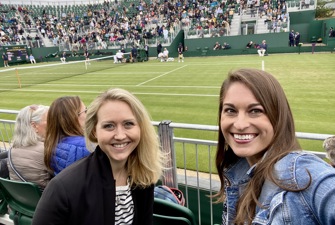Meet the speakers: “I can't see sports journalism having a healthy future”
Prominent Swedish sports journalist and columnist Olof Lundh kicks off a short series of pre-conference interviews with some of the conference speakers. Lundh is the author of the book 'Templet i öknen' (The temple in the desert), which details how the FIFA World Cup was awarded to Qatar, and at the conference he will be speaking about the future of sports journalism.
At Play the Game 2024, you'll speak about the changes have you seen in sports journalism. Can you tell us a little more about your presentation?
The challenges faced by investigative journalism in sport mirror those faced by journalism in general. It was probably easier to be a sports journalist when they tried to keep sport and politics apart, though they never really were.
It’s more difficult today, politics often involve complex matters. You have to acknowledge that things are complicated, and this is not only a problem faced by journalists. It’s difficult for the athletes too. You can understand when they say that they don’t want anything to do with politics.
Journalists, or at least columnists, are supposed to have a view of the world. But suddenly it seems like the world is more complicated to describe. How do we put forward our views without offending anyone? We need to factor in this, and then factor in that. The issues today are not black and white. Everything is shades of grey.
Does investigative sports journalism have a future?
The appetite to carry out investigations still exists. It’s not like journalists aren´t willing to criticise. If you compare the reaction to when FIFA gave the world cup to Saudi Arabia in 2034, it was immediately critical. There is a knowledge there today that was not there 15-20 years ago, about the mechanisms of sports' governing bodies.
But people aren’t prepared to pay for journalism. And if they aren’t prepared to pay, there won’t be any investigative journalism.
In the future, I think we’ll see a kind of fragmentation of the sports media market where a large part is entertainment, infotainment and fun as opposed to real reporting. This applies to both match reporting and investigative sports journalism. I think both those aspects are going to become scarcer because there is not enough money to go round.
The advertising model is broken, especially when companies like Facebook and Google are coming in and taking a lot of the advertising revenue. It is going to be really, really tough for journalism in general and also for sports journalism. I can’t see it having a healthy future.
Do you have a view on the communication policies of the large sports governing bodies?
It’s terrible. Their aim is to keep journalists at bay and avoid answering questions. They know that they can communicate by putting out their own statements and working through social media.
You just can’t ask questions of people at FIFA, the IOC or UEFA and expect an answer anymore. There’s a real lack of transparency. They have kind of closed up in a way that I never thought possible.
The IOC and FIFA have been through major anti-corruption processes. I thought this would turn them into better organisations. But after a short period of what you might call “glasnost,” they are now almost worse.
I mean, you could at least ask Sepp Blatter and Jacques Rogge questions. Today you can’t even speak to Thomas Bach or Gianni Infantino. They don’t do press conferences. They put out Q and A sheets instead. It’s really frustrating.
You were in Qatar for the 2022 World Cup? What did you take from it?
Coming into it with Western eyes, Qatar was very enlightening for me. You go to Qatar, you meet a migrant worker who tells you how much he wants to have a job there, how it’s a good job for him. But you’re not supposed to hear that, you are supposed to hear him say he’s a slave, because that’s the narrative.
A lot of people from the Muslim world now live in Sweden. They were calling us hypocrites, pointing out that we hardly said anything when the World Cup was held in Russia, or that we won’t criticise the USA or Israel, but we were all over Qatar, a Muslim country.
Are we all less idealistic about sports today?
I can see that sport can be a force for good, and it is great in bringing people together, but I have never been idealistic about what it can do. It is difficult to take the ideals of grassroots sport all the way to the top.
Today, the prestige of sport is not only being abused by autocratic states – it’s is also being used by Western states, by democracies. Here in Sweden, politicians want to be in the limelight. They will show up if someone brings an Olympic gold medal back home but won’t show up to support a local club in an impoverished area. They will not invest resources in grassroots sport. This is a real problem.
Olof Lundh is a columnist and journalist at TV4 in Sweden.
He will take part in the session 'Sports journalism: A watchdog for society or a pet for showbiz?' on Monday 5 February at Play the Game 2024.
Play the Game 2024 will take place in Trondheim, Norway, on 4-7 February 2024.



